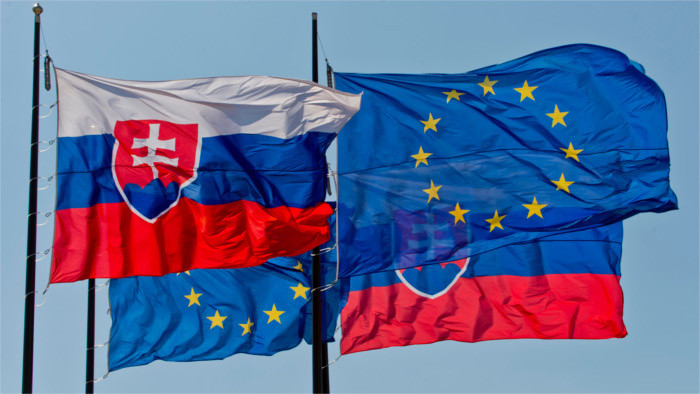61.8% of Slovaks refuse a pro-Russian foreign policy, indicate the results of a survey conducted by the Focus agency published on Sunday. Not even 17.9% of respondents were for a pro-Russian policy. As part of the survey, people were asked a question: which of the following options do you prefer concerning Slovak foreign policy?
- a clear pro-European and pro-Atlantic policy as carried out by the Slovak Foreign Ministry
- a more pro-Russian foreign policy as carried out by Speaker of Parliament Andrej Danko
As the survey indicates, not even the voters of the Slovak National Party led by Danko share a unified opinion in this topic. 46.7% are in line with Danko's policy and 39.5% are against it. On the other hand, supporters of the far-right Kotleba-People's Party Our Slovakia are the strongest supporters of the pro-Russian policy (46.8%). However, as many as 36.9% of the far-right party supporters chose a clear pro-European and pro-Atlantic option.
Voters of the non-parliamentary coalition Progressive Slovakia and Spolu are the biggest pro-European and pro-Atlantic supporters (94.1%). Among the supporters of other opposition parties, over 80% of respondents who are voters of Freedom and Solidarity, Ordinary People and Christian Democratic movement were for the pro-west policy.
The survey was conducted on March 28 and 29 on 1,204 respondents.
"Challenging the values and political anchorage of Slovakia through acts or rhetoric is irresponsible and playing with the future of the country," said Slovak Foreign and European Affairs Minister Miroslav Lajčák on Monday. According to him, in a dynamic and changing environment, Slovakia has to build on partnerships within the EU and NATO. "In these times, there is absolutely no room for experimenting with unsustainable options. Last year, we talked about many challenges, however, we did not feel the need to discuss consensus in foreign policy," said Lajčák, adding that since last year, negative trends such as disinformation, extremism and confusing discussions on the future of Europe have grown stronger.
In the past Lajčák criticized Danko for his visits to Russia and especially delivering his speech in the Russian State Duma in 2017. Lajčák was uncomfortable with the fact that Danko had felt no need to consult his speech in advance with Foreign Ministry.


